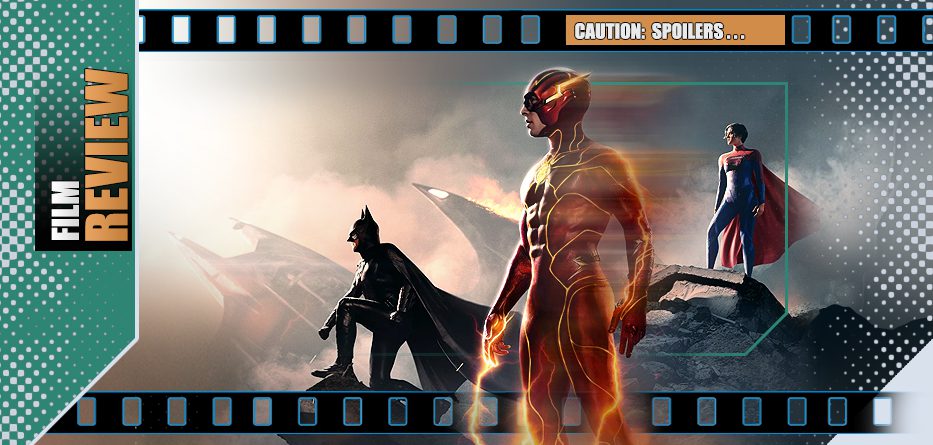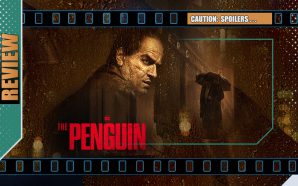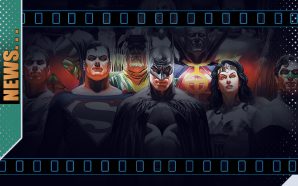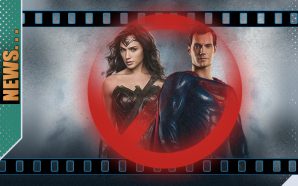Barry Allen may not be up-to-speed on social interaction but has managed to refine his powers as ‘The Flash’ into an effective and sometimes inventive way to fight crime and save lives… but when his frustration over his father’s impending trial leads him to travel faster than he has ever done before, he becomes aware that he can use the speed-force to actually bend time. Though Bruce Wayne warns him of the potential consequences of ‘time-travel’, Barry decides that only a small alteration in events might be able to save his mother from an unexplained demise and his father from being wrongfully imprisoned.
However even when Barry succeeds in his efforts, it appears that there are greater forces at work and the ripple effect of his efforts may have devastating consequences. Now with a parallel version of himself, he/they must seek out the help of this new timeline’s Dark Knight and an imprisoned steely visitor from Krypton to help save a world that otherwise seems devoid of the numerous heroes that Barry once fought alongside. But some of those faces won’t be the ones he expects.
And now the existence of the multiverse may depend on the literal mother of all battles…
*spoilers*
Avengers: Endgame won its MCU MVP position by putting in a decade worth of hard work and delivering solid action, real heart and genuine consequences. But while that film tied off Marvel‘s well-executed blueprint with a nice bow, The Flash – effectively dashing to the finishing line after a decade long wobble – serves to be a similar consequential cornerstone of the DCU but in a very different way: acknowledging the ages of scattershot, contradictory development across the releases and finding a way to throw everything that’s come before on to the screen to clear the decks for what comes after. It’s as if someone put Spider-man: No Way Home in a blender with Bill and Ted’s Excellent Adventure and then figured the avalanche of use-it-or-lose-it IP branding would then take care for itself.
For a while, it promises to do so, opening with some self-deprecating humour and outlandish action that suggests we’re in for at least a fun, rollercoaster ride. A lot of the earlier scenes are played for grins… Affleck’s Batman having too big an ego to actually say thank you (thanks to Wonder Woman’s lasso of truth), Barry’s imaginative way of saving a deluge of falling babies, his hapless interactions with potential love interest Iris West, the ‘Eric Stoltz was Marty McFly theme’ and simply running into walls when devoid of his speedster powers show Barry to be deft at acrobatics but able to stumble over every social interaction. But as the film progresses it loses sight of the characters and goes for quicker and quicker quips and spectacle…. and what is being fought for nearly gets lost in the noise.
It’s as if someone put Spider-man: No Way Home in a blender with Bill and Ted’s Excellent Adventure and then figured the avalanche of use-it-or-lose-it IP branding would then take care for itself… (it’s) a glorious madcap mess for the party-faithful, an indulgent example of sheer momentum carrying the most troubled production forward and yet remaining a little too cocky for its own good…
The over-all message of the film is that there’s danger in lingering on the tragedies of the past at the expense of the present and future triumphs, but though it’s Barry’s grief and frustrations that pave the way to a good intentioned (but disastrously dystopian decision) to rewrite history, it’s something of a bogus existential journey that eventually uses that catalyst to throw in a bullet-list of fractured lets-visit-old-faces cameos and often too-chaotic action. In Flashpoint, the DC Comics-inspiration for the basic idea of Barry’s past being changed and the ripple effect that creates, we get some explanation of how the murder of Barry’s mother is both a cause-and-effect and an ironic effect-and-cause of the original origin story, but here, that important piece of the jigsaw (the why of her demise) is largely left untouched. It’s the convenient touchpaper and the epilogue but almost nothing inbetween with only the emotional part of Barry changing and then restoring the events playing out.
Ezra Miller is fine as the two Barrys – the original and the one created by his interference – though both feel like the kind of people with whom you wouldn’t want to spend a lot of time. Miller is clearly a decent performer in front of the camera as much as the actor seems to be a train-wreck off-camera. It’s important to try and judge a film on its own merits and put aside any of the baggage it may bring with it. However, given Ezra Miller’s off-screen trials, tribulations, criminal charges and generally unpleasant and strange behaviour (to the extent he still has legal troubles and was almost entirely sidelined in the marketing) it’s impossible to completely ignore those factors and this meta-human tale becomes metatextual with dialogue that seems to partially acknowledge it while surrendering them to simple punchlines. The Flash’s early remark that one of the rescued survivors should seek mental health professionals to deal with their trauma because ‘these events can be psychologically scarring… and the Justice League is not very good at that part yet…trust me…‘ and references to Barry having to drug an alternate-self so he forgets events hit a little too close to home to be entirely cast aside.
A collapsing multiverse (a fairly common-staple of the comics medium every time it needs a reboot, rewrite or shot in the arm) is becoming an equal go-to across the cinematic superhero genre (with no signs of it stopping as Marvel‘s Kang-centric plans – though in flux through their star’s off-screen problems – is also currently set to stretch into to the 2030s). But that dilemma overtakes things here, allowing miss-matches that both delight and frustrate. The most marketed example is the return of Michael Keaton’s Bruce Wayne/Batman which can’t fail to send a tingle down the spine when he emerges and Danny Elfman’s theme starts to soar. Acting a little like a George-Carlin’d Rufus to Barry and Barry’s Bill and Ted, for a while, Keaton carries the film through pure nostalgia, a Batarang aimed unapologetically at the part of the audience who grew up with his version.
Other characters fair less well. There may have been some gnashing of teeth from knuckle-draggers when Sasha Calle was cast as Supergirl (suspension of disbelief about jumping buildings in a single bound abiding but – good grief – a Latino skin, bangs and no blonde hair???). Calle is fine but ultimately fairs little better than being a piece of tech to take down an arbitrary villain and apparently always destined to die in the process. That villain, General Zod, might have seemed like a good idea in principle, but Michael Shannon who played the main protagonist in Man of Steel has far less to do here than posture and look pissed off. He lacks any of the gravitas that, say, Thanos delivered in Endgame. And that’s key – the film really does lack any sort of real bad-guy, instead emphasising the idea that it’s time/the collapsing multiverse itself that’s the real threat not the jigsaw’d debris in its wake. But in the end, even that crumbles and swirls into just a storefront of previous properties. As much as the cameos of a CGI Christopher Reeve and Helen Slater, a glimpse of Henry Cavill, a recreation of George Reeves and the bizarro inclusion of Nicolas Cage (from the never-filmed, died-in-development Tim Burton attempt), Adam West… and *that* Bat-reveal at the end, get the pulse racing for a second, its telling how the focus is on variant-Supes/Bats rather than the far flimsier screen legacy of the Flash himself. To that extent, there are also some blatant missed opportunities. Grant Gustin just wrapped up nine years on the CW‘s version of The Flash (and even had an episode that had Miller cameoing for a fun sequence), so it seems disappointing (if not a little disingenuous) not to have Gustin or 80s’ incarnation John Wesley Shipp reprise their incarnations here, if only for a second. Equally, if you can recreate Reeve in the maelstrom of glimpses and linger a little too long on the Cage aspect, could we not have had Val Kilmer, some Lois Lanes and even the likes of Brandon Routh, the CW‘s current Tyler Hoechlin or even (if you really must) Dean Cain, just for grins?
While the VFX look inconsistently somewhere between cheap and decent enough, neither do they feel cutting-edge…they move between the now-expected, standard-fare and benchmark already set down by a multitude of other productions (the later battlefield-sequences feel as if they could have been randomly-inserted into any superhero movie without drawing any raised eyebrows) and some perspective-stretches work that varies in result. The sometimes distorted outside-the-universe ‘home’ of the Speed Force defies any real logic but the hardship comes from trying to lock on to anything in the background before it slides or dances out of view – like trying to catch a permanent rainbow somewhere in a visual oil-spill.
The result – directed by IT‘s Andy Muschietti – is a big, widescreen manic film that is neither the disaster it could have been (opening box-office bodes well but nowhere near as spectacular as some predicted) nor totally worth the wait of a decade of development. It’s a glorious madcap mess for the party-faithful, an indulgent example of sheer momentum carrying the most troubled production forward and yet remaining a little too cocky for its own good in its attempts to clear up a mess that it forgets was somewhat of its own studio’s making. Perhaps a last hurrah, perhaps a first volley… it will be interesting to see where James Gunn takes things from here. Like Marvel‘s marmite movies of late, planning rather than pace may be the true arbiter and flashpoint…
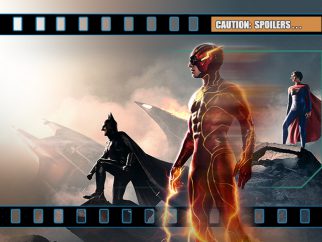
- Story8
- Direction8
- Acting8
- Production Design / VFX8

